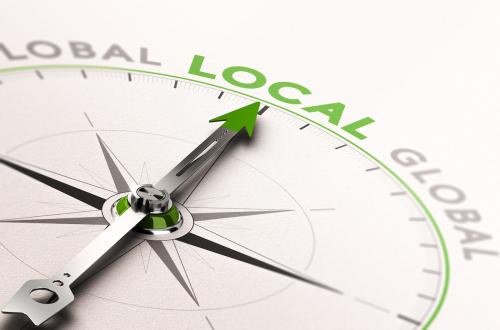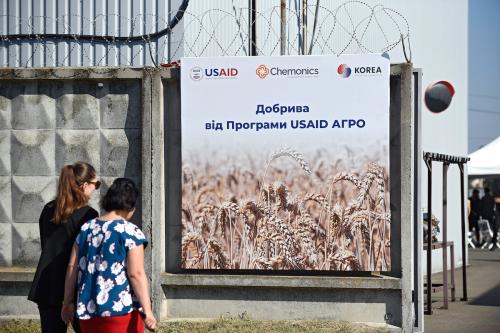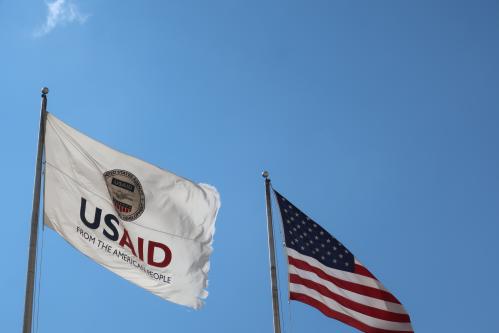More than two years after the predominantly Muslim Séléka rebel group overthrew the government of President François Bozizé, igniting waves of intercommunal violence between the country’s Muslim minority and Christian populations, the Central African Republic (CAR) is still working to end the cycles of violence and reunite the country. This month, the CAR took an important step toward fostering national cohesion through its week-long Bangui Forum on National Reconciliation, which concluded on Monday, May 11. The Bangui Forum brought together nearly 700 leaders from diverse groups within the CAR’s society—including the transitional government, national political parties, the main opposing armed groups (the Séléka and anti-balaka), the private sector, civil society, traditional chiefs, and religious groups—to define their collective vision for the country’s future. At breakout meetings on the themes of peace and security, justice and reconciliation, social and economic development, and governance, participants debated the different elements of the country’s peacebuilding agenda, and during the plenary session over the weekend, adopted several important recommendations, highlighted below:
1.) A new disarmament agreement between the Séléka and anti-balaka:
Ten factions of the Séléka and anti-balaka militias signed a Disarmament, Demobilization and Reintegration (DDR) agreement, which called for all combatants to give up their weapons by the time of the national elections. According to the agreement, former combatants (who have not been charged with war crimes) will either be integrated into state security institutions—the army, police or national forestry and water commission—or become beneficiaries of income-generating community development projects. Meanwhile, armed actors from other countries who did not commit war crimes will be repatriated to their countries of origin.
While observers have widely applauded the conclusion of this agreement, significant challenges to its full implementation remain, including major funding gaps for the DDR program (an issue that held up DDR during the last crisis in the CAR), as well as the weak capacity of the armed groups’ leaders to exercise control over all of their members and ensure their compliance with the disarmament process. For the DDR program to succeed this time around, the government and international community must put forward sufficient funding for the proposed process and build up the state’s security institutions and development programs targeted to former combatants in order to incentivize them to leave their positions in the militias.
2.) The release of child soldiers:
Leaders of the two main armed groups have agreed to release all children under their control, estimated to number from 6,000 to 10,000 children, according to the United Nations Children’s Fund (UNICEF). Once the children are released, they will receive medical treatment, psychosocial support, and then will be returned to their families and communities or placed in foster care. The exact timeline for the release of all the children has yet to be determined; however, on Thursday, May 14, 357 children were released in a ceremony near Bambari. The Séléka and anti-balaka leaders have also granted humanitarian actors complete and immediate access to the areas where the children are located so that UNICEF and its partners can begin identifying and reuniting them with their families. Although the release and provision of emergency services to more than 300 children on Thursday is considered a great first step toward ending child suffering in the CAR, as noted by UNICEF representative Mohamed Malick Fall, the children will still “require extensive support and protection so that they can rebuild their lives and resume their childhood.” To fund its child soldier reintegration and rehabilitation efforts in the CAR, UNICEF has requested $73.9 million in 2015, but as of April 30, only $17 million has been funded.
3.) A timeline for elections and extension of the current government’s mandate:
The recommendations adopted by the forum called for the elections to be postponed—to June and July for parliamentary elections and to August for the presidential one. This does not come as a big surprise, considering the sheer number of prerequisites (e.g., establishing a threshold of security, obtaining polling equipment, and training electoral staff and observers) that need to be met in order to hold the elections, and the limited time and funding made available (only 26 percent of the requested amount has been received by May 2015) to achieve these requirements. In turn, participants called for the current transitional government to make a request to the Conference of Heads of State of the Economic Community of Central African States (ECCAS) to remain in office until the elections take place. According to former prime minister and president of the CAR’s URCA party (Union pour le renouveau centrafricain), Anicet-George Dologuélé, extending the current government’s time in office until the elections take place is the most practical way forward, since assembling a new government and allowing it time to settle in and establish its work plan will take several months—by which point it will be time to replace them via the national elections. Still, some critics of the decision to keep the current government in power, including the president of the party Mouvement démocratique pour la renaissance et l’évolution de la Centrafrique, Joseph Bendouga, argue that the country should not allow an extension of the current government since it could give the current leaders the false idea that their time in power could be indefinite.
4.) National and local mechanisms for justice and reconciliation:
Participants agreed on the structures for justice and reconciliation in the country, including a national truth and reconciliation commission, as well as broad-based, local peace and reconciliation committees. Local initiatives will often be spearheaded by traditional chiefs given their strong influence within communities (compared to the state’s weak resources and capacity to reach out to communities). Trust between stakeholders will need to be gained and strengthened, and the role of religious leaders in building peace will remain important. Participants also called for a formal investigation into cross-border crimes, especially those committed by the Lord’s Resistance Army.
5.) Social and economic development priorities:
Restarting the CAR’s economy despite the pockets of insecurity that still exist throughout the country is foremost on the minds of Central Africans. Building inclusive economic institutions is extremely important to the country as a means of reducing the poverty and inequalities that have created the grievances and tensions between different social groups in the past. Opportunities for revitalizing the mining and agricultural sectors received the most attention from the forum’s participants, who proposed that the sanctions imposed on diamonds in the CAR by the Kimberly Process be removed and that seeds, tools, and other agricultural inputs be distributed to farmers to restart their production. The forum also emphasized the primacy of enabling herders, who fled to neighboring countries during the conflict, to return to the CAR by replenishing their herds. While the government is facing a number of competing priorities in the allocation of its limited fiscal resources, focusing on targeted investments in the sectors that will help mobilize additional domestic revenues is crucial to creating a foundation for economic recovery and can help strengthen domestic institutions. Efforts by the international community to restore peace in the CAR should not preclude assistance towards economic developement.
Turning a new leaf?
On the one hand, these promising agreements reflect the desire of Central Africans to move past the conflict and build a more peaceful, democratic society; on the other hand, as noted by Interim President Catherine Samba-Panza, the CAR has a history of holding national debates on peace and reconciliation—five since 1980—and then descending again into crisis. Even on forum’s last day, disorder broke out as some members of the anti-balaka expressed their dissatisfaction with the forum’s final recommendations by walking out during the closing ceremony. Two hundred to 300 anti-balaka and Séléka protesters gathered outside the forum to voice frustrations over the fact that several of their members have been put under house arrest and will face criminal trials for crimes that they committed during the conflict. As the ceremony ended, shots sounded in the street, demonstrating the fragile security situation the country still faces.
Yet, unlike past national hearings on peace and reconciliation—in which political elites assembled to make decisions of national import on behalf of the entire country—this forum relied heavily on grassroots consultations and the inclusion of citizens’ voices, especially those most affected by the conflict. With strong participation from affected populations, it is now up to the transitional government and its international supporters to muster the political will to carry out the aspirations of the Central African people.



Commentary
Five takeaways from the Bangui Forum for National Reconciliation in the Central African Republic
May 15, 2015